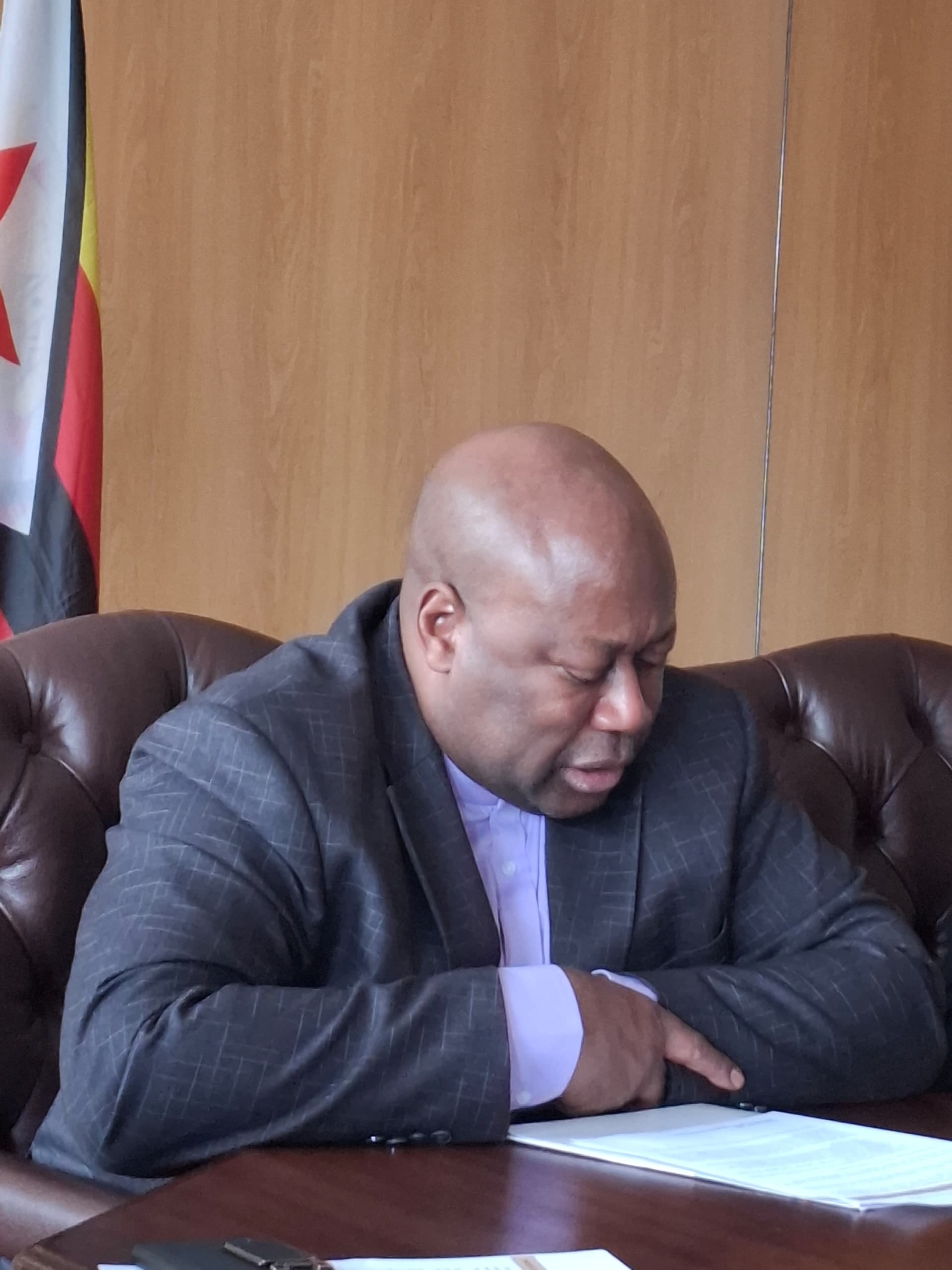By Julius Manganda
In a bid to interject the upsurge in cholera cases and improve the general hygiene and health in the city of Harare, government has launched “Operation Chenesa Harare (Clean Harare) which runs from the 5th to the 12th of January 2024.
Government said residents of Harare have endured uncollected garbage, illegal dump sites, bursting sewer pipes and inaccessibility to clean water, owing to dereliction of duty by City authorities hence the intervention.
Riding on the whole of government approach, a number of ministries including the Finance Ministry, Ministry of Local Government, Ministry of Environment and other key institutions like Civil Protection Unit and Environmental Management Agency EMA have been roped in, as government seeks to find a sustainable solution to the perennial problem.
Minister of Information, Publicity and Broadcasting Services Dr Jenfan Muswere, seating together with Minister of Health and Child Care, Dr Douglas Mombeshora addressed the media in Harare this Saturday.
The two Cabinet ministers gave details of the current intervention and the long term plan with emphasis on sustainable waste management and provision of clean portable water in Zimbabwe’s capital city.
Minister Muswere said “government has embarked on a sustainable clean cities programme which has been necessitated by the failure of city Harare to clear waste dumps and to provide requisite infrastructure to provide health services across Harare Metropolitan province. We have embarked on a seven-day operation called Operation Chenesa Harare which started yesterday.”
Dr Mombeshora said the operation is meant to address the poor hygiene conditions prevailing in Harare.
“We have given ourselves one week running from January 5 to January 12 2024 to make sure all garbage in Harare is collected. This operation has been necessitated by increased cases of cholera that we are now witnessing in Harare. The operation is meant to address the poor hygiene conditions prevailing in the City of Harare,” said Dr Mombeshora.
He added that, “As you know, cholera is a deadly disease when not managed well, but the causes are easily preventable, because it is caused by poor hygiene and sanitation conditions. Part of this operation is to address these poor hygiene conditions which are prevailing in Harare.
“It is the duty of the government to intervene wherever they see things are not moving properly. Harare city council is failing to collect garbage, it is failing to provide clean portable water and Harare city council is failing to have proper sewer reticulation system and waste management,” said Dr.Mombeshora.
On the first day of the operation, about 65 tonnes of garbage was removed using dump trucks and the total tonnage that was moved with all other equipment is slightly over 122 tonnes. The garbage is being taken to the newly upgraded Pomona dumpsite.
The government has mobilized resources and has also engaged the private sector to come in and assist so that Harare is cleaned up. In total 13 tipper trucks, six front-end loaders, a backhoe loader and 16 refuse compactors are already deployed and more are expected to come for the operation.
A high-level meeting involving officials from other ministries have been scheduled to facilitate the release of more funds to procure water treatment chemicals for Harare.
For the operation, the city has been partitioned into five regions, with region one covering the CBD, Mbare, Sunningdale, Waterfalls and Hatfield.
Region two covers Harare South, comparison Southlea Park, Hopley and Ushewokunze while Region three covers Highfield, Southerton, Glen Norah, Glen View, Churu Farm, Budiriro and Mufakose. This region has been identified as a hot spot hence 14 trucks have been deployed there.
Region four covers Dzivaresekwa, Warren Park, Kambuzuma, Kuwadzana, Mabelreign, Marlborough and Mt Pleasant, while Region five covers Borrowdale, Hatcliffe, Highlands, Mabvuku and Tafara.

